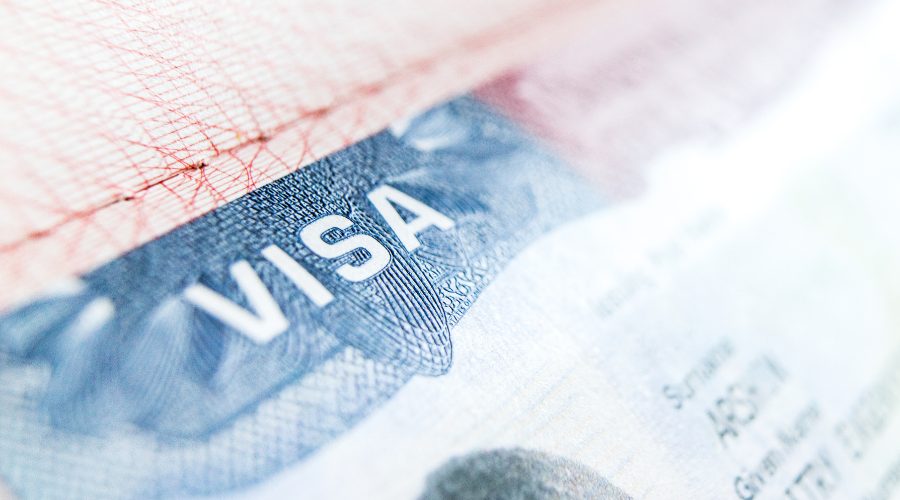This site uses cookies to provide you with a more responsive and personalized service. By using this site you agree to our use of cookies. You can learn more about our use of cookies and similar technologies and your choices by reviewing our Privacy Policy. By clicking “I agree” you agree to our use of cookies and similar technologies.
Corporate Compliance Services
In an era of heightened scrutiny by shareholders, the government and the public, the way in which a company conducts its business is as important as the results it produces. Compliance with all the state and federal laws and regulations that apply to your business and adherence to standards and ethical practices should be an essential part of your business operations. Violations can result in serious injury to your organization in the form of fines, lawsuits, loss of reputation and profits, and more.

FCPA + UK Bribery Act Compliance
In the global economy, no company that does business outside the United States can afford to be ignorant of the requirements of the Foreign Corrupt Practices Act (FCPA) and the UK Bribery Act. Broadly speaking, the FCPA prohibits U.S. nationals, incorporated entities, and their agents from giving money or anything of value to a foreign official to obtain or retain business. The broader UK Bribery Act prohibits bribes paid to any person to induce them to act “improperly” and is not limited to foreign officials.
FCPA prosecutions and investigations have skyrocketed in recent years and the U.S. Department of Justice has made it clear that it intends to step up its enforcement efforts even more. The Department has advised that “to avoid being held liable for corrupt third party payments, U.S. companies are encouraged to exercise due diligence and to take all necessary precautions to ensure that they have formed a business relationship with reputable and qualified partners and representatives.”
Guidepost Solutions is expert in navigating through the minefield of the FCPA and the UK Bribery Act and offers a comprehensive range of services meant to ensure that a corporation, its directors and employees deal only with worthy and qualified partners and agents. First, at the ground level, we can design and implement an effective program – or review and improve on an existing program – that promotes ethical conduct and minimizes the risk of bribery law violations. Our internal controls consulting can ensure that your company is in the best position to minimize the risk of violations. Moreover, a cornerstone of our services is our due diligence and vetting of suppliers, distributors and other third parties. Guidepost Solutions helps our clients identify red flags before conducting business with these entities or individuals.
If an FCPA or UK Bribery Act issue does arise, our worldwide network of investigators, auditors and attorneys have the experience, skills and maneuverability necessary to investigate and analyze violations in all corners of the world. Finally, our team can serve as an independent monitor of companies that have been found to be in violation of these regulations and have entered into settlement agreements with government agencies. As the monitor, we help companies identify vulnerabilities in their existing anti-bribery programs and implement best practices to minimize the risk of future violations.
Independent Compliance Reviews
Business entities are compelled to hire independent compliance consultants under a variety of scenarios. Companies facing possible indictment or other business-threatening outcomes may proactively hire an independent expert to review their operations to ensure that the problems that brought the company to the attention of the authorities are eliminated and prevented in the future. In some industries, regulatory requirements dictate the appointment of an independent expert under certain circumstances. Or, companies wanting to instill protocols and positive attitudes toward compliance and ethics and improve relationships with constituents may voluntarily engage the services of a compliance expert to review existing procedures and achieve best practices.
Our team of former prosecutors, forensic accountants, investigators, and industry experts has extensive experience working closely with numerous companies in several industries to conduct comprehensive, unbiased operational reviews that identified and rooted out illegal, unethical, or non-compliant activity and provided businesses with a roadmap to avoid future problematic conduct.

Sexual Harassment in Workplace
We are frequently asked about the most efficient ways to ensure an organizations is being proactive relative to allegations of sexual harassment. Below we provide some basic things to think through as your organization works to effectively handle the issues around sexual harassment.
Leadership must be in sync.
An organization reflects its leadership’s values. If the leaders do not demonstrate a commitment to fair and impartial handling of sexual harassment allegations, employees will not feel comfortable nor supported in the reporting of this inappropriate behavior. It is important to remember most employees consider their immediate supervisor as their version of leadership so the values supporting the reporting of sexual harassment must cascade throughout the organization.
Training must be relevant.
Many organizations provide some training on its expectations regarding workplace behavior, including sexual harassment. However, training must be well suited for the organization, using specific examples which are easy to relate to and clearly understood. Management, at all levels, needs to be trained to identify inappropriate behavior, address it immediately and thoroughly and know the process by which to escalate issues for further action.
Reporting processes need to be in place, understood and respectful of both the victim and the alleged offender.
With the sensitive topic and personal nature of sexual harassment, it is important to listen to the information, work to corroborate the information and investigate discreetly and impartially. Many companies utilize a 24/7, third-party tip line allowing for the reporting of workplace allegations. The reporting may include anonymous complaints and should be well known throughout the organization. A multitude of reporting mechanisms can be employed including by phone, email and in person through appropriately identified individuals and management.
Impartial investigations must be undertaken immediately.
Protecting both the victim and the alleged should be important given that any inference relative to a sexual harassment matter can be uncomfortable for either. Using external, objective and unbiased resources is critical to protect the organization and the individuals involved. Without an impartial investigation respectful of all parties, future investigations will be hampered, fewer victims will report issues and witnesses and offenders will be less likely to cooperate. Having an efficient and respectful process will demonstrate the commitment by the organization to those involved.
Determine if immediate action is needed.
Quick action is sometimes required of businesses based either on a risk of potential, additional harm to a victim or others or additional risk to the organization. Organizations working with both internal and external partners need to understand what behavior requires an immediate organizational response. Having a core team able to quickly take in and assess specific information relative to serious allegations, provide counsel as to the risk and liability of the organization, provide appropriate resources for the victim and make sure the privacy and rights of both the victim and the alleged offender are protected, goes a long way in developing a culture of responsiveness.
Trade Compliance
With more and more companies relying on services and manufacturing processes that incorporate various steps of managing, construction/assembly, and back office support services across multiple countries, it is crucial for proper trade compliance protocols to be in place.
Electronic data transfers and movement of intellectual property through digital media offer potential trade issues. Mergers, joint ventures and other burgeoning trade developments have necessitated U.S.-based companies to become aware of the various import/export policies that may affect their interests.
The reality of international supply chains has resulted in a complex milieu of rules and regulations governing the controls. These controls advance foreign policy, economic growth and safeguard national security interests. Exceedingly strong enforcement by regulators and significant consequences for failure to comply has made import/export controls more important to companies than ever before.
Whistleblower Enforcement
Our experience has taught our team that employees become whistleblowers when they are frustrated with their company’s response to internal complaints. Corporate culture must encourage reporting and prohibit retaliation, and employees should be trained on the company’s reporting channels and know how to use them.
We recognize the risk companies face when their employees choose to act as whistleblowers instead of reporting internally. Consequently, we help companies implement internal reporting structures and compliance programs that encourage employees to turn first to the company for help. As part of this implementation, we offer training for employees on how to report misconduct, both internally and externally.
We also train company employees tasked with receiving complaints on how to effectively elevate the reports to a central location/repository so that no complaints fall through the cracks. When a complaint is received, our team members can be brought in to help manage the investigation to make sure that it is reviewed efficiently and effectively. The presence of an independent and objective reviewer oftentimes reassures the employee who filed the complaint that their concern is being addressed in the proper manner.
We also understand that at times a company’s system is corrupted, and acting as a whistleblower becomes the best option for employees to report wrongdoing. In these instances, we can assist either the government or the company, in thoroughly investigating the complaint. Additionally, our ethics and compliance experts can perform reviews of the company’s existing systems, both as an independent measure by the company and as part of a monitorship required by a government agency. Our reviews help our clients to identify vulnerabilities and implement stronger and more effective compliance programs to restore employee confidence in the company’s compliance program.
Finally, our experts can help a company identify vendors to manage the ongoing whistleblower program and develop protocols to ensure the successful execution of a whistleblower program.
Whistleblower provisions are constantly evolving and companies must stay up to date with these changes. We are experts on the provisions and can help educate companies and their employees on what these laws and provisions mean to them. Our objective is to make sure that the employees and the companies they work for are aware of the tools at their disposal to report and correct unethical and unlawful behavior.
Anti-Human Trafficking Compliance
The potential for human trafficking in supply chains should be of concern for all companies and organizations that have global and complex supply chains.
For federal government contractors, it is mandated by Executive Order that their companies assist in the battle against human trafficking, both within their own ranks and within their supply chains. Federal requirements can be difficult for businesses to manage.
Developing goals and key performance indicators, and monitoring adherence to such goals is essential. Internal discovery and vigorous remediation demonstrate a company’s commitment to combating human trafficking.
Services include:
- Developing internal company policies and procedures that explicitly prohibit human trafficking, including incorporating a zero- tolerance policy for human trafficking in supplier selection procedures
- Developing of a Code of Supplier Conduct that can be integrated into supplier contracts
- Establishing a third-party compliance certification program to ensure all entities within your supply chain are adhering to the standards implemented under your Code of Supplier Conduct
- Compliance review of your anti-trafficking standards to include on-site/unannounced visits to supply chain facilities world-wide
- Creating an annual report on the measures undertaken by your company in relation to human trafficking requirements including results of contractor and sub-contractor compliance
- Conducting an industry risk assessment on your company and suppliers as required under the aforementioned Executive Order
- Formulating recruitment, wage and housing plans
- Creating an employee hotline that ensures that complaints are memorialized and investigated, and that callers remain anonymous
- Creating and conducting human trafficking awareness and training programs
Developing goals and key performance indicators, and monitoring adherence to such goals is essential. Internal discovery and vigorous remediation demonstrate a company’s commitment to combating human trafficking.


































































